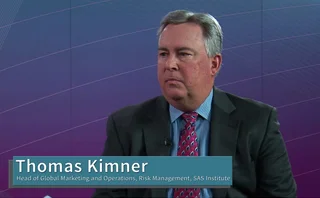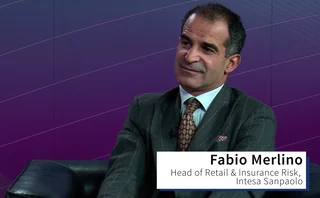
Kroszner: “Investors less informed than they originally thought”
Investors in structured credit assets, such as collateralised debt obligations, recently “realised they were much less informed than they originally thought”, according to US Federal Reserve governor Randall Kroszner.
Price discovery had failed in structured credit, he said, because investors had recognised these assets were more complicated than they first appeared. “The complex structures of innovative instruments, and the lack of transparency with regard to the underlying assets backing these instruments, made them more difficult and costly to value than many investors originally thought,” he said.
In addition to this, he suggested investors might not have done enough due diligence on such products, relying too heavily on credit ratings. “In these circumstances, it is not necessarily surprising that investors pulled back from purchasing certain instruments at any price.”
To reduce the chance of unanticipated losses in future, Kroszner said investors would need better resources to assess the risk of structured credit assets, especially in times of market stress. As this would increase the cost of investing, he speculated those involved in securitisation might make changes to the way they approach structured credit. “[They] may respond by reducing complexity, improving the quality of underlying assets, or increasing transparency and disclosure.”
Such calls are similar to those made by the chairman of the Washington, DC-based Institute for International Finance (IIF) and Deutsche Bank chief executive, Josef Ackermann, at the Institute’s 25th anniversary membership meeting on October 21. The IIF is setting up a committee to refine industry best practice in a number of areas, including transparency and disclosure, credit ratings, and valuation in thinly traded markets. The committee is expected to produce recommendations to the IIF by the first quarter of 2008, but the exact nature and scope of the proposals are as yet unclear.
Only users who have a paid subscription or are part of a corporate subscription are able to print or copy content.
To access these options, along with all other subscription benefits, please contact info@risk.net or view our subscription options here: http://subscriptions.risk.net/subscribe
You are currently unable to print this content. Please contact info@risk.net to find out more.
You are currently unable to copy this content. Please contact info@risk.net to find out more.
Copyright Infopro Digital Limited. All rights reserved.
As outlined in our terms and conditions, https://www.infopro-digital.com/terms-and-conditions/subscriptions/ (point 2.4), printing is limited to a single copy.
If you would like to purchase additional rights please email info@risk.net
Copyright Infopro Digital Limited. All rights reserved.
You may share this content using our article tools. As outlined in our terms and conditions, https://www.infopro-digital.com/terms-and-conditions/subscriptions/ (clause 2.4), an Authorised User may only make one copy of the materials for their own personal use. You must also comply with the restrictions in clause 2.5.
If you would like to purchase additional rights please email info@risk.net
More on Infrastructure
Communications surveillance solutions 2024: market update
A report offering Chartis’ latest view of the vendor landscape for communications surveillance solutions
SIMONE, the AI that nearly took down a bank
An algorithm designed to create new structured products ran out of control last year with almost catastrophic consequences for a major bank, as our exclusive whistleblower account reveals
Revealed: where banks are (literally) warehousing their swaps
As derivatives notional grows, dealers experiment with novel storage solutions
E-trading takes hold for FX swaps – sort of
Bulk of trades are being executed over screen, but bolder changes have stalled
From DNA to DHA – Preparing for a new era of digital human augmentation
As technology increasingly permeates societies, cultures and everyday activities, its integration into people’s lives is having a profound impact on what is expected of people in the workplace. Deloitte examines this evolution of today’s workforce, the…
Risk and finance: Working more closely together
Video interview: Thomas Kimner, SAS
Video interview: Fabio Merlino, Intesa Sanpaolo
Fabio Merlino, head of retail and insurance risk discusses how the wealth management division of Intesa Sanpaolo upgraded its risk analytics capabilities with the algo system used by its proprietary traders
The changing face of Risk.net and our magazines
Extensive reader consultation has helped us reshape editorial teams and our site







